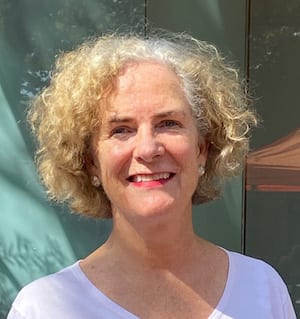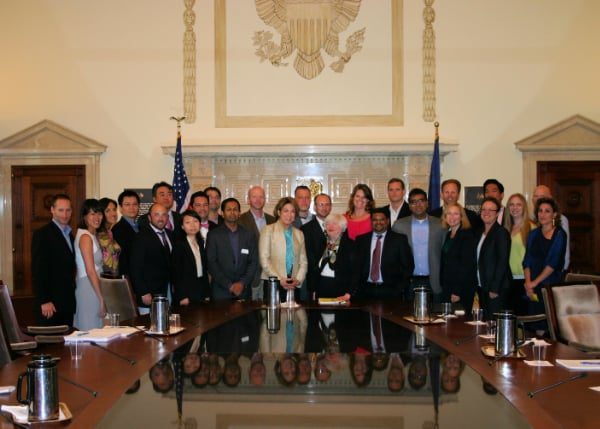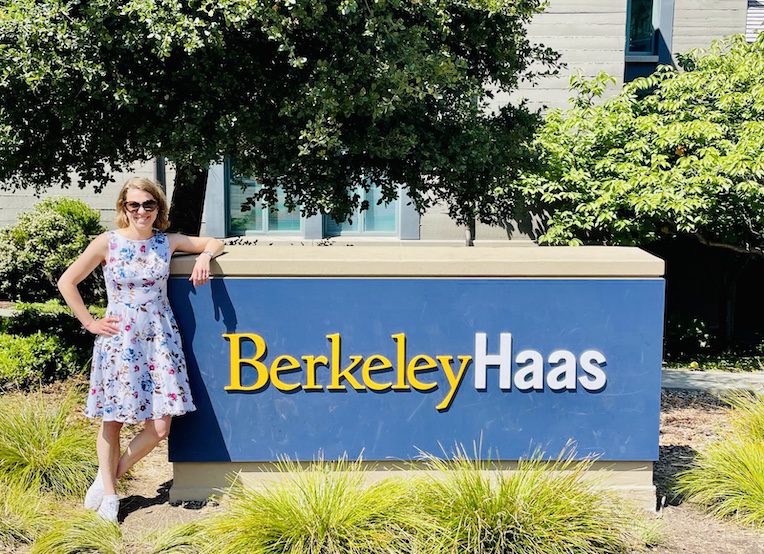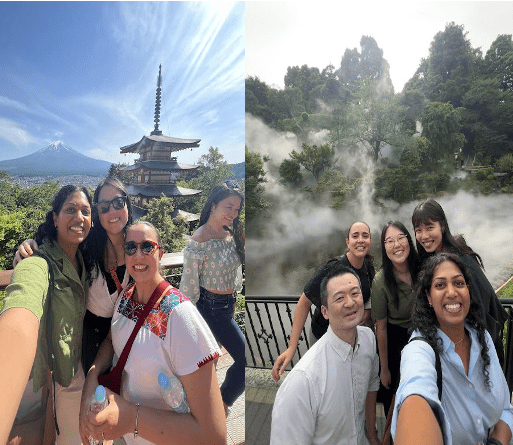Oil and Gasoline 101
As the executive director of Sustainability Programs at Berkeley Haas, Michele de Nevers has spent the past few months working closely with Dean Ann Harrison to shape the school’s long-term sustainability vision.

Michele de Nevers, executive director of sustainability programs at Berkeley Haas.
De Nevers might well be the perfect person for the newly created job: Her impressive career has included teaching graduate students in Barcelona about international climate change policy to co-authoring a paper for the Center for Global Development that argued that developing countries should receive performance payments from richer countries for keeping their tropical forests intact and reducing deforestation.
At the World Bank, where she spent three decades, she managed environmental projects ranging from pollution reduction to conservation of biodiversity. And she led global consultations on the corporate Strategic Framework for Development and Climate Change, a strategy report that outlined the World Bank Group’s plan to respond to new development challenges posed by climate change.
In this interview, de Nevers discusses how Haas can deepen its existing sustainability strengths through efforts to support faculty, students, and programs.
Haas News: Can you summarize your vision for sustainability at Haas?
Michele de Nevers: Our vision is to make Haas the No. 1 business school in terms of sustainability. That means a focus on leadership: developing our future leaders who will go out into the world and actually implement the transformation of economic and social systems—energy, transportation, land use, cities—that will be required to avoid and respond to the impacts of climate change.
How do you define what sustainability means to our community?
At the most basic level, I think it’s important that every Haas graduate comes away with basic literacy on sustainability, which means understanding the challenges, the opportunities, and the risks that will be needed to manage in the business world. This includes leading the efforts to reduce greenhouse gas emissions to net zero by 2050, responding to the impacts of climate change, and working toward building climate resilience. Future business leaders will need to manage stresses on natural resources, particularly water scarcity in western states like California. And they will also need to manage the social side of sustainability, which will increasingly determine support from constituents—shareholders, employees, customers and communities.
At the most basic level, I think it’s important that every Haas graduate comes away with basic literacy on sustainability.
What is Haas already getting right?
Haas is already doing a lot. About 20% of the professional and ladder faculty are working on environmental, social, or governance areas that can be considered part of sustainability. There are many areas where we are very strong, have huge recognition, and a great reputation. Examples include the Energy Institute, which has a very deep bench, and a critical mass of experts from the ladder faculty, and the Sustainable and Impact Finance Initiative (SAIF), which is hugely popular with students. The Fisher Center for Real Estate and Urban Economics is transitioning its program toward sustainability through low-carbon built environment (LCBE) projects, which give students opportunities for hands-on experiential learning in local communities. The Center for Responsible Business helps students work directly with leading companies on Corporate Social Responsibility (CSR) issues. The Sustainable Food Initiative links food, land use, and regenerative agriculture, and the Center for Equity, Gender & Leadership (EGAL) addresses the social side of sustainability, including diversity, equity, and inclusion and the gender-pay gap. What we are hoping to do is to build on these pillars of strength, and deepen and reinforce each of these areas, some of which need additional financing and ladder faculty support.
What we are hoping to do is to build on these pillars of strength, to deepen and reinforce each of these areas, some of which need additional financing and ladder faculty support.
Another example of sustainability on campus is Chou Hall, which continues to have considerable support from the Haas community.
The Haas Sustainability Task Force, led by Danner Doud-Martin, is terrific. Her group includes faculty, staff, and students, a whole community that’s passionate and motivated, working on making Chou Hall and the rest of campus Zero Waste. They’re looking at initiatives to reduce paper and plastic use, to encourage reusables, and to make travel carbon free. Working with the task force can give students the hands-on experience that potential employers are looking for. Haas is really in the lead here.
How is sustainability included in the curriculum?
In the recent review of the core curriculum the faculty agreed to weave sustainability considerations into the core courses. This is already happening in several courses. One of my next areas of inquiry is to work with the faculty to examine what’s in the curriculum for core courses, and to collaborate in areas where we might be able to help to build in sustainability. We need to look at whether we need to commission more case studies or provide other kinds of support. We also need to figure out how to fund and support more faculty research on sustainability.
What do you and Dean Harrison consider the top funding priorities for sustainability efforts at Haas?
The main priority for Haas is to raise money to hire more ladder faculty, to expand funding for student research and for fellowships, and to provide reliable funding for the centers and institutes and for capstone programs like Cleantech to Market (C2M). So, fundraising is important. Luckily Dean Harrison is very good at that, and she’s on it.
Posted in:
Topics:



